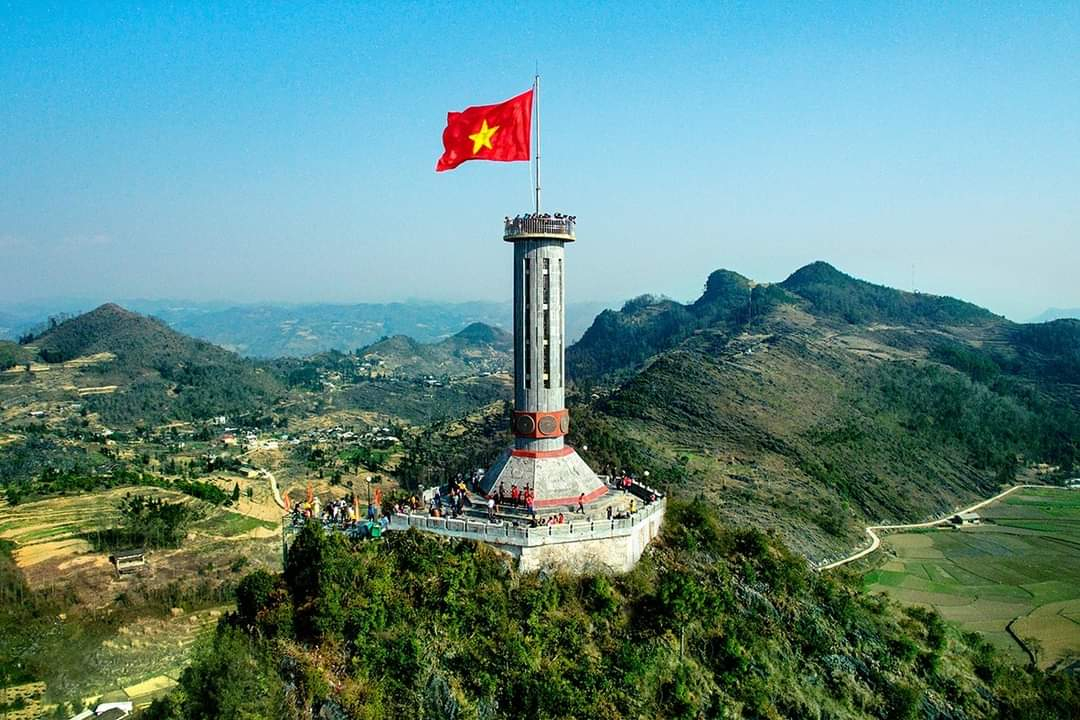In northern Vietnam, a village charms visitors with earthen walls and stone fences
Over the past two years, a collaborative effort between the government and local residents has not only maintained Lo Lo Chai village's traditional values but also given it a fresh image.
Over the past two years, a collaborative effort between the government and local residents has not only maintained Lo Lo Chai village's traditional values but also given it a fresh image.

Lo Lo Chai Village, located near the northernmost point of Vietnam, has experienced a remarkable transformation. It remains a custodian of its deep-rooted heritage, with houses that have been passed down through generations of the Lo Lo people, preserving their traditional cultural characteristics.
The village is perched in the Lung Cu Commune within Dong Van District in Ha Giang Province, and is approximately 280 kilometers from Hanoi.

In early 2022, Lo Lo Chai was officially designated as a Cultural and Tourism Village, marking the beginning of a more organized and professional approach to tourism. The number of visitors has been steadily increasing since then.

According to Nguyen Van Chinh, vice chairman of Dong Van District People's Committee, Lo Lo Chai currently consists of 119 households with 542 residents, including 42 households offering homestay accommodations and five running restaurants. On peak days, the village can host up to 600 visitors, typically on weekends and holidays. On weekdays, there's an average of 100 to 200 guests.

The village's traditional Lo Lo architecture remains intact, characterized by houses with earthen walls on three sides, and gates and fences made of hand-arranged stones. To cater to tourists, these houses have been upgraded with self-contained toilets and other modern conveniences.

Preserving this traditional architecture has been challenging. Previously, residents made alterations to their homes based on personal preferences. However, through discussions, the community has come to understand the importance of preserving their heritage.
Until recently, many households were primarily engaged in agriculture and animal husbandry, leading to environmental concerns. But they've now transitioned to the tourism business, guided by a detailed service model. This shift has significantly boosted their income, with the average monthly earnings per family ranging from VND20 million to VND30 million ($813 to $1,220).

The village's homestays have a traditional design, featuring shared living areas. Within these rooms, one can discover ancient artifacts from the Lo Lo people, contributing to a warm and welcoming ambiance.

The serene and tranquil corners of Lo Lo Chai allow visitors to have a peaceful getaway.

Visitors can book rooms and meals through social media platforms. Business owners often provide daily updates on temporary residency and absences within these channels.
Tuan Dao, a Hanoi-based photographer, has visited Lo Lo Chai three times, with his first visit dating back a decade. When he returned in mid-October of this year, he was astounded.
"Lo Lo Chai had undergone a big transformation. The local residents greeted me with pride and enthusiasm. It's now an entirely different place,'" Dao said.

The homestay rates in Lo Lo Chai offer a range of options, from VND150,000 to VND800,000 ($6 to $32) per night.

The facilities for tourists are consistently being enhanced, and you'll also find souvenir stalls and local product offerings to enhance your experience.
Chinh mentioned that the residents of the village have recently ventured into the realm of tourism, and at times, they may not perform the highest level of professionalism and precision. He expressed his hope that tourists would be understanding and patient during their visits.

Dao said: "What truly captivates me about Lo Lo Chai today is the opportunity to experience genuine homestays, where we can immerse ourselves in the local community and witness their way of life. A few years back, there were talks of potential villa and swimming pool projects here. I'm delighted to see Lo Lo Chai today."
Photos by Tuan Dao (VnExpress)



